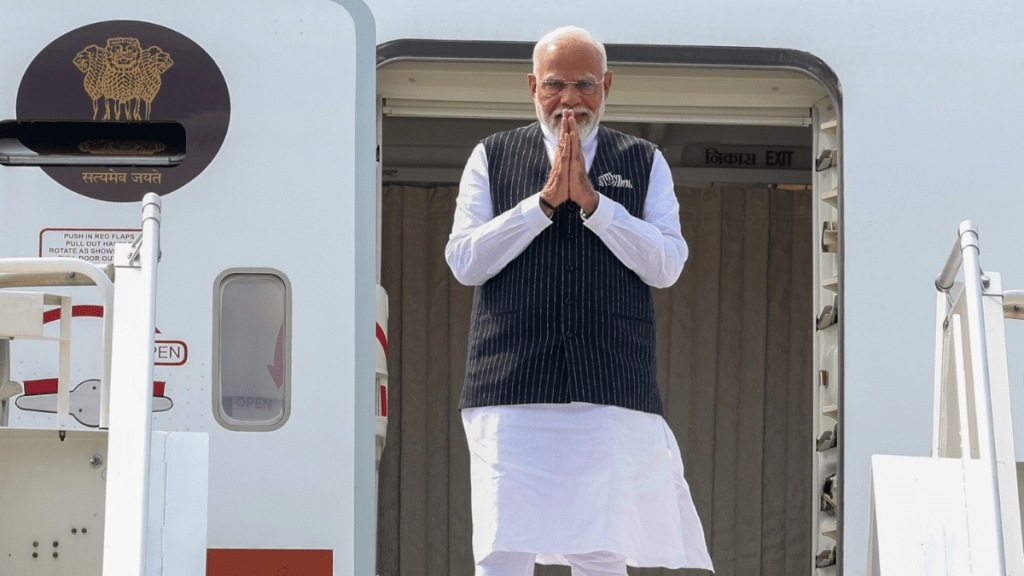Prime Minister Narendra Modi’s visit to Ukraine marks a significant moment in India-Ukraine relations, as it is the first time an Indian Prime Minister has visited the country. The visit takes place amid the ongoing conflict between Ukraine and Russia, a situation that has dominated international headlines and posed challenges for global diplomacy. India, maintaining a delicate balance between its relationships with Russia and Ukraine, sees this visit as an opportunity to further its role in seeking a peaceful resolution to the conflict.
Agenda and Objectives in Ukraine
The primary agenda for PM Modi’s visit to Ukraine revolves around strengthening bilateral ties and exploring avenues for peaceful conflict resolution. The visit will include talks with Ukrainian President Volodymyr Zelenskyy, where discussions are expected to cover a wide range of topics, including agriculture, infrastructure, pharmaceuticals, education, and defence. Importantly, the ongoing Ukraine-Russia conflict will be a key focus, with India reiterating its stance on resolving disputes through diplomacy and dialogue.
India has consistently advocated for peace and stability in the region, and PM Modi’s visit underscores this commitment. By engaging directly with Ukrainian leadership, India hopes to contribute to finding a peaceful solution to the conflict and also position itself as a key player in the post-conflict reconstruction of Ukraine. New Delhi’s willingness to assist in Ukraine’s recovery process highlights its broader strategic interests in the region.
Ukraine’s Expectations from the Visit
Ukraine views PM Modi’s visit as a critical opportunity to deepen its relationship with India, particularly in the context of the ongoing conflict. Ukrainian leaders are hopeful that India’s involvement could lead to meaningful progress toward peace. Additionally, Ukraine is keen on securing India’s assistance in rebuilding its war-torn economy. The visit is expected to culminate in the signing of several agreements aimed at enhancing bilateral cooperation.
However, the visit also follows tensions in the India-Ukraine relationship, particularly after Ukrainian President Zelenskyy criticized PM Modi’s meeting with Russian President Vladimir Putin. Despite this, both nations appear committed to moving forward and strengthening their partnership.
Visit to Poland: Revitalizing Bilateral Ties
Following his visit to Ukraine, PM Modi has landed in Warsaw, marking the first visit by an Indian Prime Minister to the country since 1979. This visit coincides with the 70th anniversary of diplomatic relations between India and Poland and is aimed at revitalizing and elevating bilateral ties to a new level.
Strengthening Economic and Defence Cooperation
Poland is a key economic partner for India in Central Europe, and the visit is expected to focus on enhancing economic cooperation, particularly in areas such as manufacturing and defence. With Poland undergoing substantial military modernization and being a strong supporter of Ukraine, India sees potential in learning from Poland’s defence strategies and exploring collaborations.
During his visit, PM Modi will meet with Polish Prime Minister Donald Tusk and President Andrzej Duda. These discussions will likely cover a range of topics, including trade, defence cooperation, and people-to-people ties. The appointment of a Defence Attaché by India to Poland earlier this year underscores the importance India places on deepening defence relations.
Conclusion: Balancing Diplomacy in a Complex Geopolitical Landscape
PM Modi’s visits to Ukraine and Poland reflect India’s strategic balancing act in a complex geopolitical landscape. By engaging with both countries, India aims to strengthen its bilateral relations while maintaining its independent stance on the Ukraine-Russia conflict. The outcomes of these visits will likely shape India’s diplomatic trajectory in the region and further its role as a key player in global peace and stability efforts.

